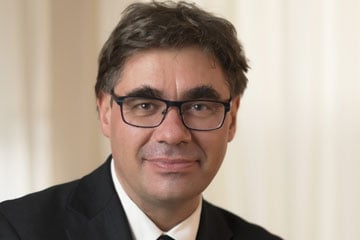
A new research project to establish alternative models of practice and remuneration for Quebec lawyers is the latest of several initiatives — both public and private — that aim to increase access to justice and ensure a brighter future for the legal profession in la belle province.

A new research project to establish alternative models of practice and remuneration for Quebec lawyers is the latest of several initiatives — both public and private — that aim to increase access to justice and ensure a brighter future for the legal profession in la belle province.
Dubbed “Hub 23” — a designation as the 23rd study in the larger Accessing Law And Justice research project, a federally and provincially funded program based at the Université de Montréal that explores difficult relationship issues between citizens and the justice system — the new project will consider both the feasibility and long-term viability of novel compensation methods for lawyers beyond hourly fees.
“The issue of fees is critical for lawyers in private practice,” says UdeM law professor and ADAJ founder Pierre Noreau. “It is also part of a larger question: How can lawyers offer citizens the services they need and earn a good living doing that?”
According to Noreau, the results of a poll conducted in Quebec a year ago by the ADAJ speak volumes about the impact of fees on people’s decision to hire a lawyer.
More than 90 per cent of respondents said they would prefer to have legal representation in court when seeking justice or defending themselves in civil cases.
However, nearly three-quarters of respondents said they couldn’t afford to pay lawyers more than $100 an hour for their services — even though the average hourly fee charged by Quebec lawyers is between $150 and $200.
Noreau says the fear of incurring legal fees, which can add up quickly in complex cases, helps to explain why most Quebecers now represent themselves in civil cases — or simply desist from seeking legal advice, even for more mundane matters.
People go to a lawyer’s office when they have major issues, says Noreau. “But they often need consultation or advice for dealing with day-to-day issues like a neighbour throwing snow on their yard or understanding an official letter from government.”
Lawyers, he adds, need to tap into that latent demand by thinking hard about the kinds of services people in their communities require and how best they can meet those needs.
“It’s a real challenge,” says Noreau. “We must redefine lawyers’ services from a whole new standpoint.”
The Hub 23 project, which is led by Noreau and Julie Paquin, an associate professor with the University of Ottawa’s civil law section, aims to do just that.
Both a followup and add-on to years of widespread and consultations and a major 2016 study by the Barreau du Québec on the challenges and limitations of hourly pricing in today’s wireless world, the Hub 23 project will, according to the ADAJ website, “draw on the expertise of practitioners involved in the day-to-day practice of law and university researchers from several disciplines (sociologists of organizations, management specialists, accountants, economists and lawyers) to establish models of practices likely to ensure a future for legal practice and true access to professional service for middle-income households.”
According to Noreau, possible ideas include law firm co-operatives, novel fee-for-act pricing schemes and more use of articling students in case work.
The three-year study is being funded by Jolicoeur Lacasse, with matching funding provided by Mitacs, a non-profit group that works with universities and companies to design and deliver research and training programs across Canada.
“Today’s law practice fee model — the number of hours times a lawyer’s capacity to do the work — hasn’t changed for centuries,” says Éric Beauchesne, president and CEO of Jolicoeur Lacasse, which has 100 lawyers working in offices in Montreal and Quebec City. “It puts a brake on the profession. We need to develop modern business models.”
Some Quebec law firms are already doing that.
One firm — Trivium Avocats — is now offering small and medium businesses up to 48 months in financing at 6 per cent interest (through the Desjardins credit union) for civil suit work.
Another firm — OnRegle.com — offers set fees for piecemeal work such as demand letters and telephone calls. It also offers online negotiating services with adversarial parties — in return for 2.5 per cent of negotiated settlements.
Montreal’s Novalex is also now offering one hour of legal service pro bono to low-income people, non-profit groups and startups for every hour of legal services it provides to business clients.
Perhaps the best example of practice innovation in Quebec is Neolegal.ca.
Founded in May 2017, the 10-lawyer firm runs a brick-and-mortar law office in downtown Montreal.
But much of the growing number of legal services it provides on a piecework basis for both individuals and businesses are delivered across Quebec via the internet.
“We are like a Google company,” says Philip Hazeltine, a former tax lawyer with Lavery de Billy who left to found Neolegal. “We are a web-based, paperless firm for lawyers and clients.”
Hazeltine says both the inspiration for his company and its primary goal is to increase public access to legal services.
“I saw that everyone wanted to defend themselves because of the billing costs of traditional legal services,” says Hazeltine. “I want to industrialize the legal practice by optimizing the repetitive tasks and not piling on the hours.”
He says his firm’s web-based services, which include a portal for downloading documents and consulting lawyers, are proving popular among the 3,000 clients it has served to date.
“We have great feedback,” he says. “People are amazed by how fast and cost effective our service is. I really think we have the solution for the problem of access to justice.”